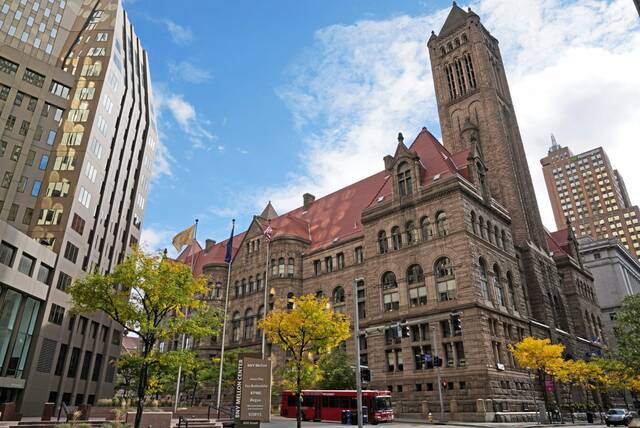https://naviga.triblive.com/opinion/editorial-veto-not-a-defeat-for-fitzgerald-but-a-victory-for-people-and-process/
Editorial: Veto not a defeat for Fitzgerald but a victory for people and process

A veto is an important part of the system that limits the power of one office by offering power to another.
The system of checks and balances modeled at the federal level and copied by the states and even some local governments is how we keep our leaders from becoming despots — as long as the system works, that is.
It starts with the passage of a bill into law. That requires a majority of the lawmakers to make the decision. From there, it goes to the head of the executive branch, who can sign off if he wants it to go into effect or veto it if he wants to stop it.
Veto means “I forbid” in Latin. It’s a little grandiose a word for a process that absolutely does not stop there.
Once vetoed, the measure in question can return to the lawmakers to see if they have enough votes to overturn the veto, making the proposal into law at last. It’s a tedious back-and-forth, but jumping through the hoops is necessary to keep the legislative branch from steamrolling the executive or vice versa.
Last week, Allegheny County Executive Rich Fitzgerald exercised his right to veto twice. Once was on the county council’s ban of the new fracking leases for county parks. The second was on a proposal that would let council have more control over salaries that were given by the executive.
On Tuesday, the council answered, showing how challenging a veto can succeed and fail. The fracking ban veto was overturned. The salary oversight veto was not.
What was the difference? It may come down to the real check on elected officials: the people.
There were local residents, activists and advocates supporting the ban. There were also those opposed to it: a farmer who leases his property for fracking and employees of the natural gas industry. There was loud, sometimes rowdy, conversation.
When it came down to it, there were about four people supporting the ban for every one who opposed it. That is, incidentally, exactly the split in the final vote. Twelve yeas to three nays. More than enough to overturn Fitzgerald’s veto pen for the first time in his three terms.
Fracking is a polarizing issue in Southwestern Pennsylvania. For some, it means jobs, increased income, a way to offset tax increases. For others, it means threats to water and land, health concerns and potentially long-term negative economic impact.
From the moment the bill was proposed, there was bound to be a deep divide and a public response. But the degree of very public feedback showed a system working the way it is supposed to work.
When people show up and speak up, it is hard for leaders to ignore.
Copyright ©2025— Trib Total Media, LLC (TribLIVE.com)
